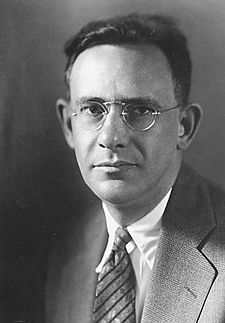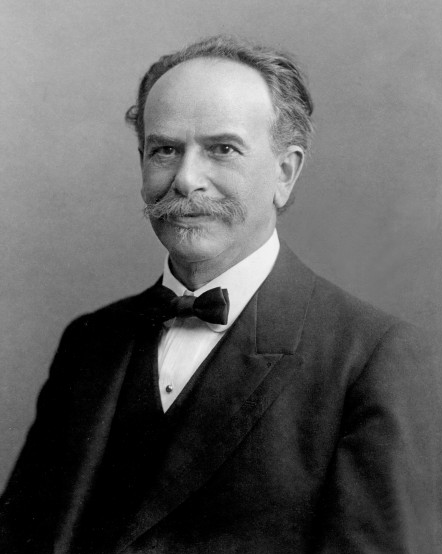|
B. L. Whorf
Benjamin Lee Whorf (; April 24, 1897 – July 26, 1941) was an American linguist and fire prevention engineer. He is known for "Sapir–Whorf hypothesis," the idea that differences between the structures of different languages shape how their speakers perceive and conceptualize the world. This principle has been named after him and his mentor Edward Sapir, which was initially called linguistic relativity by Whorf because he saw the idea as having implications similar to Einstein’s principle of physical relativity. The idea, however, follows from post-Hegelian 19th-century philosophy, especially from Wilhelm von Humboldt; and from Wilhelm Wundt's Völkerpsychologie. Throughout his life Whorf was a chemical engineer by profession, but as a young man he took an interest in linguistics. At first this interest drew him to the study of Biblical Hebrew, but he quickly went on to study the indigenous languages of Mesoamerica on his own. Professional scholars were impressed b ... [...More Info...] [...Related Items...] OR: [Wikipedia] [Google] [Baidu] |
Winthrop, Massachusetts
Winthrop is a town in Suffolk County, Massachusetts, Suffolk County, Massachusetts, United States. The population was 19,316 at the 2020 United States Census, 2020 census. Winthrop is an ocean-side suburban community in Greater Boston situated at the north entrance to Boston Harbor, close to Logan International Airport. It is located on a peninsula, 1.6 square miles (4.2 km2) in area, connected to Revere, Massachusetts, Revere by a narrow isthmus and to East Boston, Massachusetts, East Boston by a bridge over the harbor inlet to the Belle Isle Marsh Reservation. Settled in 1630, Winthrop is one of the oldest communities in the United States. It is also one of the smallest and most densely populated municipalities in Massachusetts. It is one of the four cities that compose Suffolk County (the others are Boston, Revere, Massachusetts, Revere, and Chelsea, Massachusetts, Chelsea). It is the southernmost part of the North Shore (Massachusetts), North Shore, with a shoreline tha ... [...More Info...] [...Related Items...] OR: [Wikipedia] [Google] [Baidu] |
Bertrand Russell
Bertrand Arthur William Russell, 3rd Earl Russell, (18 May 1872 – 2 February 1970) was a British mathematician, philosopher, logician, and public intellectual. He had a considerable influence on mathematics, logic, set theory, linguistics, artificial intelligence, cognitive science, computer science and various areas of analytic philosophy, especially philosophy of mathematics, philosophy of language, epistemology, and metaphysics.Stanford Encyclopedia of Philosophy"Bertrand Russell" 1 May 2003. He was one of the early 20th century's most prominent logicians, and a founder of analytic philosophy, along with his predecessor Gottlob Frege, his friend and colleague G. E. Moore and his student and protégé Ludwig Wittgenstein. Russell with Moore led the British "revolt against idealism". Together with his former teacher A. N. Whitehead, Russell wrote ''Principia Mathematica'', a milestone in the development of classical logic, and a major attempt to reduce the whole ... [...More Info...] [...Related Items...] OR: [Wikipedia] [Google] [Baidu] |
Wilhelm Wundt
Wilhelm Maximilian Wundt (; ; 16 August 1832 – 31 August 1920) was a German physiologist, philosopher, and professor, known today as one of the fathers of modern psychology. Wundt, who distinguished psychology as a science from philosophy and biology, was the first person ever to call himself a psychologist. He is widely regarded as the "father of experimental psychology"."Wilhelm Maximilian Wundt" in ''Stanford Encyclopedia of Philosophy''. In 1879, at the , Wundt founded the first formal laboratory for psychological research. This marked psychology as an independent field of study. By creating this laboratory he was able to establish psychology a ... [...More Info...] [...Related Items...] OR: [Wikipedia] [Google] [Baidu] |
Philosophy
Philosophy (from , ) is the systematized study of general and fundamental questions, such as those about existence, reason, knowledge, values, mind, and language. Such questions are often posed as problems to be studied or resolved. Some sources claim the term was coined by Pythagoras ( BCE), although this theory is disputed by some. Philosophical methods include questioning, critical discussion, rational argument, and systematic presentation. in . Historically, ''philosophy'' encompassed all bodies of knowledge and a practitioner was known as a ''philosopher''."The English word "philosophy" is first attested to , meaning "knowledge, body of knowledge." "natural philosophy," which began as a discipline in ancient India and Ancient Greece, encompasses astronomy, medicine, and physics. For example, Newton's 1687 ''Mathematical Principles of Natural Philosophy'' later became classified as a book of physics. In the 19th century, the growth of modern research universiti ... [...More Info...] [...Related Items...] OR: [Wikipedia] [Google] [Baidu] |
Hegelianism
Georg Wilhelm Friedrich Hegel (; ; 27 August 1770 – 14 November 1831) was a German philosopher. He is one of the most important figures in German idealism and one of the founding figures of modern Western philosophy. His influence extends across the entire range of contemporary philosophical topics, from metaphysical issues in epistemology and ontology, to political philosophy, the philosophy of history, philosophy of art, philosophy of religion, and the history of philosophy. Born in 1770 in Stuttgart during the transitional period between the Enlightenment and the Romantic movement in the Germanic regions of Europe, Hegel lived through and was influenced by the French Revolution and the Napoleonic wars. His fame rests chiefly upon ''The Phenomenology of Spirit'', ''The Science of Logic'', and his lectures at the University of Berlin on topics from his ''Encyclopedia of the Philosophical Sciences''. Throughout his work, Hegel strove to address and correct the problemat ... [...More Info...] [...Related Items...] OR: [Wikipedia] [Google] [Baidu] |
General Relativity
General relativity, also known as the general theory of relativity and Einstein's theory of gravity, is the geometric theory of gravitation published by Albert Einstein in 1915 and is the current description of gravitation in modern physics. General relativity generalizes special relativity and refines Newton's law of universal gravitation, providing a unified description of gravity as a geometric property of space and time or four-dimensional spacetime. In particular, the ' is directly related to the energy and momentum of whatever matter and radiation are present. The relation is specified by the Einstein field equations, a system of second order partial differential equations. Newton's law of universal gravitation, which describes classical gravity, can be seen as a prediction of general relativity for the almost flat spacetime geometry around stationary mass distributions. Some predictions of general relativity, however, are beyond Newton's law of universal gravitat ... [...More Info...] [...Related Items...] OR: [Wikipedia] [Google] [Baidu] |
Linguistic Relativity
The hypothesis of linguistic relativity, also known as the Sapir–Whorf hypothesis , the Whorf hypothesis, or Whorfianism, is a principle suggesting that the structure of a language affects its speakers' world view, worldview or cognition, and thus people's perceptions are relative to their spoken language. Linguistic relativity has been understood in many different, often contradictory ways throughout its history. The idea is often stated in two forms: the ''strong hypothesis'', now referred to as linguistic determinism, was held by some of the early linguists before World War II, (a debate between university professors) while the ''weak hypothesis'' is mostly held by modern linguists. * The ''strong'' version, or ''linguistic determinism'', says that language ''determines'' thought and that linguistic categories limit and determine cognitive categories. This version is generally agreed to be false by modern linguists. * The ''weak'' version says that linguistic categories and ... [...More Info...] [...Related Items...] OR: [Wikipedia] [Google] [Baidu] |
Sapir–Whorf Hypothesis
The hypothesis of linguistic relativity, also known as the Sapir–Whorf hypothesis , the Whorf hypothesis, or Whorfianism, is a principle suggesting that the structure of a language affects its speakers' worldview or cognition, and thus people's perceptions are relative to their spoken language. Linguistic relativity has been understood in many different, often contradictory ways throughout its history. The idea is often stated in two forms: the ''strong hypothesis'', now referred to as linguistic determinism, was held by some of the early linguists before World War II, (a debate between university professors) while the ''weak hypothesis'' is mostly held by modern linguists. * The ''strong'' version, or ''linguistic determinism'', says that language ''determines'' thought and that linguistic categories limit and determine cognitive categories. This version is generally agreed to be false by modern linguists. * The ''weak'' version says that linguistic categories and usage only ... [...More Info...] [...Related Items...] OR: [Wikipedia] [Google] [Baidu] |
Linguistics
Linguistics is the scientific study of human language. It is called a scientific study because it entails a comprehensive, systematic, objective, and precise analysis of all aspects of language, particularly its nature and structure. Linguistics is concerned with both the cognitive and social aspects of language. It is considered a scientific field as well as an academic discipline; it has been classified as a social science, natural science, cognitive science,Thagard, PaulCognitive Science, The Stanford Encyclopedia of Philosophy (Fall 2008 Edition), Edward N. Zalta (ed.). or part of the humanities. Traditional areas of linguistic analysis correspond to phenomena found in human linguistic systems, such as syntax (rules governing the structure of sentences); semantics (meaning); morphology (structure of words); phonetics (speech sounds and equivalent gestures in sign languages); phonology (the abstract sound system of a particular language); and pragmatics (how social con ... [...More Info...] [...Related Items...] OR: [Wikipedia] [Google] [Baidu] |
Mike Whorf
Michael Whorf (April 21, 1932 - November 10, 2020) was an American radio personality based in Detroit, Michigan. He was an announcer and program host on WJR from 1964 to 2003. Whorf was producer and host of the George Foster Peabody Award-winning documentary/narrative program ''Kaleidoscope'', a combination of storytelling, interview, historic recordings and music on a particular topic. Early years and family history Whorf was born in Brookline, Massachusetts and spent his childhood and teen years in Provincetown, Massachusetts. His father was internationally renowned watercolorist John Whorf. Whorf's sisters Carol Whorf Westcott and Nancy Whorf Kelly were also Provincetown artists, and his brother John was an established applied artist in Hingham. Whorf is nephew of linguist Benjamin Lee Whorf and nephew of actor and television director Richard Whorf. Whorf graduated from Provincetown High School in 1950. Upon graduation, Whorf enlisted in the United States Air Force where he ... [...More Info...] [...Related Items...] OR: [Wikipedia] [Google] [Baidu] |
Linguistic Anthropology
Linguistic anthropology is the Interdisciplinarity, interdisciplinary study of how language influences social life. It is a branch of anthropology that originated from the endeavor to document endangered languages and has grown over the past century to encompass most aspects of language structure and use.Duranti, Alessandro (ed.), 2004''Companion to Linguistic Anthropology'' Malden, MA: Blackwell. Linguistic anthropology explores how language shapes communication, forms social identity and group membership, organizes large-scale cultural beliefs and ideologies, and develops a common cultural representation of natural and social worlds.Society for Linguistic Anthropology. n.dAbout the Society for Linguistic Anthropology(accessed 7 July 2010). Historical Development Linguistic anthropology emerged from the development of three distinct paradigms that have set the standard for approaching linguistic anthropology. The first, now known as "anthropological linguistics," focuses on the ... [...More Info...] [...Related Items...] OR: [Wikipedia] [Google] [Baidu] |
Michael Silverstein
Michael Silverstein (12 September 1945 – 17 July 2020) was an American linguist. He was the Charles F. Grey Distinguished Service Professor of anthropology, linguistics, and psychology at the University of Chicago. He was a theoretician of semiotics and linguistic anthropology. Over the course of his career he created an original synthesis of research on the semiotics of communication, the sociology of interaction, Russian formalist literary theory, linguistic pragmatics, sociolinguistics, early anthropological linguistics and structuralist grammatical theory, together with his own theoretical contributions, yielding a comprehensive account of the semiotics of human communication and its relation to culture. He presented the developing results of this project annually from 1970 until his death in a course entitled "Language in Culture." Among other achievements, he was instrumental in introducing the semiotic terminology of Charles Sanders Peirce, including especially the not ... [...More Info...] [...Related Items...] OR: [Wikipedia] [Google] [Baidu] |







